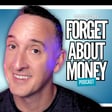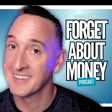
⚡What Are Options? The Good, The Bad, and The Profitable! | Karsten Jeske & Brad Finn 🤔
Watch and Subscribe on YouTube
🪙 Karsten Jeske and Brad Finn reveal the essentials of Options Trading and how it can be a game-changer in your journey to Financial Independence.
They break down the basics, demystify the risks, and share powerful strategies like covered calls and cash-secured puts to help you make informed decisions. 📈
🎨 This conversation explores why Options Trading can be both profitable and risky—with practical insights on how it can supplement your investment portfolio and enhance retirement income.
In this episode, we discuss:
1️⃣ What is Options Trading? Karsten and Brad explain the fundamentals and how options differ from other investments.
2️⃣ Call vs. Put Options: Understanding the types of options and when to use each.
3️⃣ Covered Calls and Cash-Secured Puts: How these strategies can generate income and protect your portfolio.
4️⃣ Risks and Rewards of Options Trading: Myths about options trading and how to manage potential downsides.
5️⃣ Options and Financial Independence: How options trading can play a role in achieving long-term financial goals.
6️⃣ Getting Started with Options Trading: Practical steps to begin trading, whether for income or retirement.
🔗 Karsten Jeske's Links:
💼 Karsten Jeske's Options Page
🔗 Brad Finn's Links:
🔗 David's Links:
🍏 Forget About Money on Apple Podcast
🎧 Forget About Money on Spotify
📜 Karsten Jeske & Brad Finn Quotes:
💡 "Options trading isn’t one-size-fits-all—it’s about finding the right strategy for your risk profile." — Karsten Jeske
🔗 "Covered calls are like collecting rent on your stocks—steady income with lower risk." — Brad Finn
#optionstrading #financialindependence #coveredcalls #cashsecuredputs #optionsstrategies #retirementincome
🎧 Listen & Subscribe: Hit subscribe for more strategies on building wealth and achieving financial independence. Tap the bell icon 🔔 to stay updated!
Disclaimer: This episode is for entertainment and educational purposes only and does not constitute financial or legal advice. Always consult with a professional regarding your specific financial situation.

